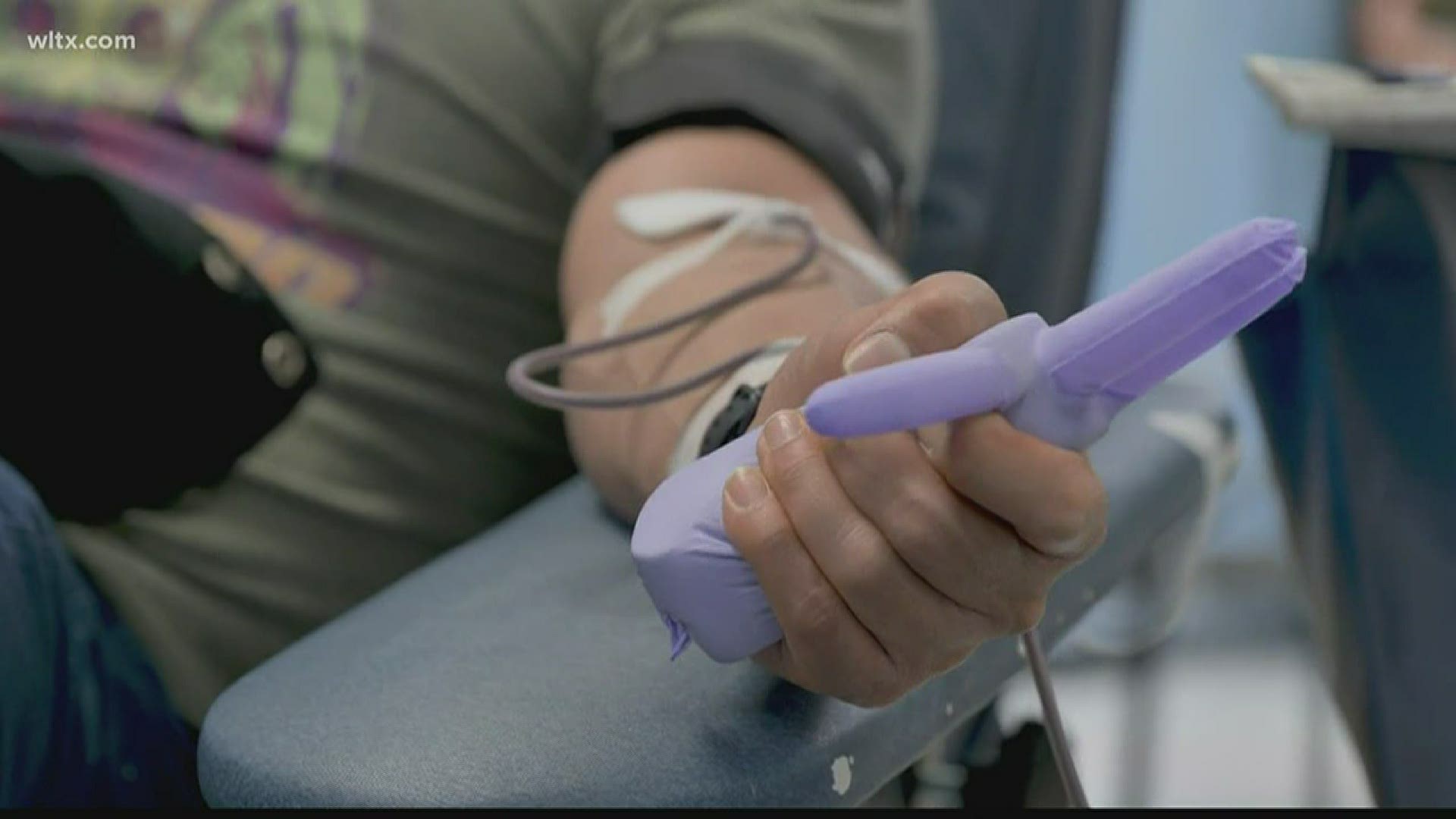WASHINGTON — On Monday, the American Red Cross began testing all blood, platelet and plasma donations for COVID-19 antibodies.
"During these uncertain times, the Red Cross hopes that testing for COVID-19 antibodies will provide its valued donors insight into whether they may have been exposed to this coronavirus."
Red Cross donors can expect to receive the results of their antibody test within 7 to 10 days through the Red Cross Blood Donor App or on the donor portal at RedCrossBlood.org.
The antibody test is authorized by the U.S. Food and Drug Administration and may indicate if the donor’s immune system has produced antibodies to the coronavirus, regardless of whether an individual developed symptoms.
For the next few months, Red Cross blood, platelet and plasma donations will be tested using samples obtained at the time of donation and sent to a testing laboratory, where the samples will also undergo routine screening and infectious disease testing. A positive antibody test result does not confirm infection or immunity.
There is an urgent need for blood donations right now, to meet the needs of patients in hospitals as surgical procedures and treatments that were temporarily paused earlier this spring in response to COVID-19 resume. At the same time, blood drives continue to be canceled, as many businesses and community organizations restrict the number of individuals at their locations creating challenges for a stable blood supply. It’s important to remember that blood is perishable and cannot be stockpiled.
To schedule an appointment to give blood, visit RedCrossBlood.org, use the Red Cross Blood Donor App, call 1-800-RED-CROSS or activate the Blood Scheduling Skill for Amazon Alexa.
With the start of antibody testing, the Red Cross anticipates increased interest in blood donation appointments in the coming days. If there is not an appointment immediately available in a given area, donations in the days and weeks ahead are still critically important to ensure a stable blood supply throughout the difficult summer months.
Blood Donation Safety during COVID-19
The Red Cross is not testing donors to diagnose illness, referred to as a diagnostic test. To protect the health and safety of our staff and donors, it is important that individuals who do not feel well postpone their donation.
It is important to note that walk-in donors may not be able to be accommodated at drives due to social distancing, so all donors are asked to schedule an appointment in advance. Also, all donors are required to wear a face covering or mask.
To ensure the health of staff and donors, precautions include:
- Checking temperatures of staff and donors before entering a drive to make sure they are healthy.
- Providing hand sanitizer for use before entering the drives, as well as throughout the donation process.
- Following social distancing between donors including entry, donation and refreshment areas.
- Ensuring face masks or coverings are worn by both staff and donors.
- Routinely disinfecting surfaces, equipment and donor touched areas.
- Wearing gloves, and changing gloves often.
- Using sterile collection sets and an aseptic scrub for every donation.
Learn more about COVID-19 blood donation safety protocols.



